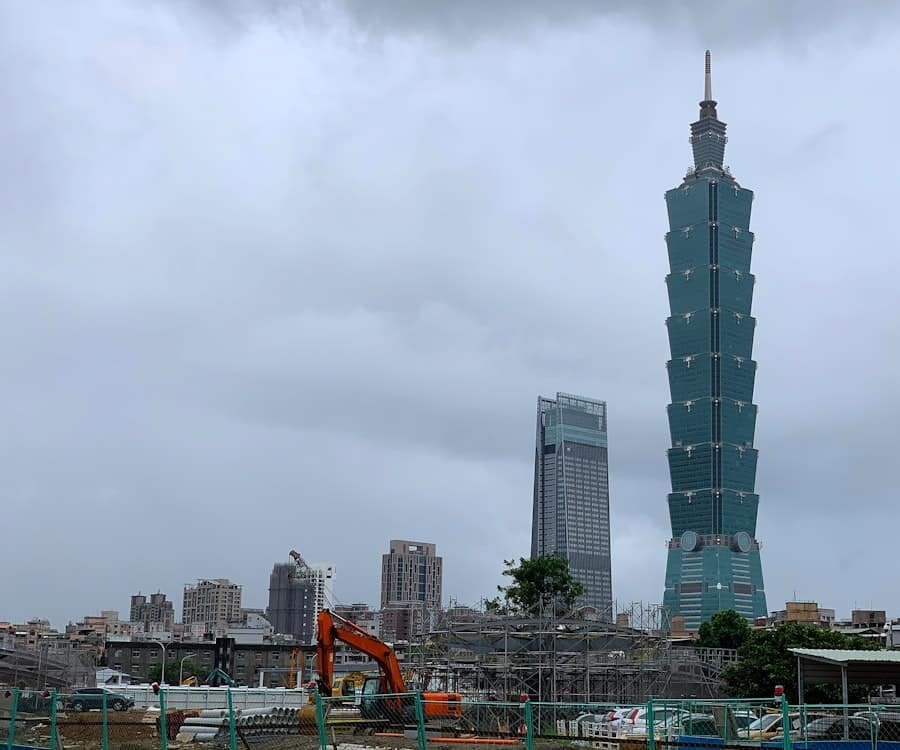Confirmation bias is a cognitive bias that influences how individuals process information. It refers to the tendency to seek out, interpret, favor, and remember information that aligns with one’s existing beliefs or hypotheses. This bias can lead people to unconsciously ignore or dismiss evidence that contradicts their preconceived notions, potentially resulting in flawed decision-making and a failure to consider alternative viewpoints.
In the realm of economic forecasting, confirmation bias can have significant implications. Analysts and decision-makers may be prone to focusing on data and indicators that support their initial predictions while overlooking or minimizing information that suggests different outcomes. This selective consideration of evidence can lead to inaccurate economic forecasts and the development of misguided strategies.
The impact of confirmation bias in economic forecasting can be far-reaching, affecting businesses, governments, and individuals. Inaccurate predictions may result in poor resource allocation, misguided policy decisions, and missed opportunities. To mitigate the effects of confirmation bias, it is crucial for economic forecasters to actively seek out diverse sources of information, consider alternative scenarios, and remain open to revising their assumptions based on new evidence.
Key Takeaways
- Confirmation bias is the tendency to search for, interpret, favor, and recall information in a way that confirms one’s preexisting beliefs or hypotheses.
- Confirmation bias can lead to inaccurate economic forecasting as analysts may only seek out information that supports their initial predictions, ignoring contradictory evidence.
- Examples of confirmation bias in economic forecasting include only considering data that supports a positive outlook while dismissing negative indicators, and relying on past successes to justify overly optimistic forecasts.
- Confirmation bias can negatively impact decision making by leading to overconfidence in forecasts, poor risk assessment, and missed opportunities for course correction.
- Strategies to overcome confirmation bias in economic forecasting include seeking out diverse perspectives, actively seeking contradictory evidence, and implementing structured decision-making processes to minimize bias.
How Confirmation Bias Affects Economic Forecasting
The Dangers of Selective Data Analysis
In economic forecasting, confirmation bias can lead to the over-reliance on certain indicators or data points that align with preconceived notions, while dismissing or downplaying contradictory evidence. This selective approach can result in a skewed understanding of the economic landscape, ultimately leading to flawed decision-making.
Misguided Investment Decisions and Missed Opportunities
For instance, if an economist is optimistic about the prospects of a particular industry, they may focus on positive economic indicators while ignoring warning signs of a potential downturn. This can lead to misguided investment decisions and missed opportunities for risk mitigation, ultimately resulting in significant financial consequences.
The Importance of Objective Analysis
It is essential for economists and analysts to recognize the potential for confirmation bias and strive for objective analysis. By considering all relevant data and indicators, rather than just those that support their initial expectations, they can make more accurate predictions and informed decisions.
Examples of Confirmation Bias in Economic Forecasting

There are numerous examples of confirmation bias in economic forecasting that have had real-world implications. One prominent example is the housing market crash of 2008. Leading up to the crash, many economists and analysts were overly optimistic about the stability and growth potential of the housing market.
This optimism led to a focus on positive indicators such as rising home prices and increased mortgage lending, while overlooking warning signs such as subprime mortgage defaults and an oversupply of housing inventory. As a result, many economic forecasts failed to accurately predict the impending crisis, leading to widespread financial turmoil. Another example of confirmation bias in economic forecasting can be seen in the dot-com bubble of the late 1990s.
During this time, there was a widespread belief that internet-based companies were poised for exponential growth and profitability. This optimism led to inflated stock prices and investment in internet startups, despite many of these companies having unproven business models and unsustainable growth trajectories. Economists and analysts who were caught up in the hype of the dot-com boom tended to focus on positive news and market trends while downplaying or ignoring warning signs of an impending market correction.
The Impact of Confirmation Bias on Decision Making
Confirmation bias can have a profound impact on decision-making in economic forecasting. When individuals are influenced by confirmation bias, they are more likely to make decisions based on flawed or incomplete information, leading to suboptimal outcomes. In the context of economic forecasting, this can result in misallocated resources, missed opportunities, and increased vulnerability to economic shocks.
For example, if a business leader is overly optimistic about the prospects of a particular market segment due to confirmation bias, they may allocate excessive resources to that segment without fully considering potential risks or alternative scenarios. This can lead to financial losses and missed opportunities in other areas of the business. Similarly, policymakers who are influenced by confirmation bias may implement economic strategies that are based on flawed assumptions, leading to ineffective policies and missed opportunities for sustainable growth.
Strategies to Overcome Confirmation Bias in Economic Forecasting
Overcoming confirmation bias in economic forecasting requires a conscious effort to mitigate its influence on decision-making processes. One effective strategy is to encourage diversity of thought and perspectives within forecasting teams. By incorporating input from individuals with different backgrounds, expertise, and viewpoints, organizations can reduce the likelihood of groupthink and confirmation bias.
This can lead to more robust analysis and a more comprehensive understanding of potential economic scenarios. Another strategy to overcome confirmation bias is to implement rigorous processes for evaluating and challenging assumptions. By systematically questioning underlying beliefs and hypotheses, economists and analysts can uncover potential biases and blind spots in their forecasting models.
This can help identify areas where confirmation bias may be influencing decision-making and lead to more accurate and reliable economic forecasts.
The Importance of Recognizing and Addressing Confirmation Bias in Economic Forecasting

The Importance of Accurate Economic Forecasts
Accurate economic forecasts are vital for organizations to make informed decisions and navigate the complexities of the global economy. By acknowledging the presence of confirmation bias and implementing strategies to overcome its influence, organizations can improve the quality of their economic forecasts and make more effective decisions.
The Consequences of Ignoring Confirmation Bias
Failure to recognize and address confirmation bias in economic forecasting can have far-reaching consequences. Inaccurate predictions can lead to financial losses, missed opportunities for growth, and increased vulnerability to economic downturns.
Proactive Strategies for Overcoming Confirmation Bias
By proactively addressing confirmation bias, organizations can enhance their ability to anticipate and adapt to changing economic conditions, ultimately leading to more resilient and sustainable strategies.
The Future of Economic Forecasting and Confirmation Bias
As technology continues to advance and data becomes more abundant, the future of economic forecasting holds both opportunities and challenges in addressing confirmation bias. With the advent of big data analytics and machine learning algorithms, there is potential for more sophisticated and accurate economic forecasting models. However, it is essential for organizations to remain vigilant in addressing confirmation bias within these advanced forecasting methods.
In the future, organizations may leverage artificial intelligence and advanced analytics tools to identify and mitigate confirmation bias in economic forecasting. By incorporating algorithms that can systematically challenge assumptions and evaluate diverse data sources, organizations can reduce the influence of confirmation bias on their forecasts. Additionally, advancements in behavioral economics and decision science may provide new insights into the underlying mechanisms of confirmation bias, leading to more effective strategies for overcoming its influence.
In conclusion, confirmation bias poses a significant challenge in economic forecasting, leading to flawed predictions and decision-making. By recognizing the presence of confirmation bias and implementing strategies to overcome its influence, organizations can improve the accuracy and reliability of their economic forecasts. As technology continues to evolve, there is potential for more sophisticated methods for addressing confirmation bias in economic forecasting, ultimately leading to more resilient and effective strategies for navigating the complexities of the global economy.
If you’re interested in learning more about economic forecasting and the potential impact of confirmation bias, check out this article on The Econosphere. This blog covers a wide range of economic topics and provides valuable insights into the world of forecasting and bias. It’s a great resource for anyone looking to deepen their understanding of economic trends and predictions.
FAQs
What is confirmation bias?
Confirmation bias is the tendency to search for, interpret, favor, and recall information in a way that confirms one’s preexisting beliefs or hypotheses. It is a type of cognitive bias and can lead to errors in judgment and decision-making.
How does confirmation bias affect economic forecasting?
Confirmation bias can affect economic forecasting by causing analysts and forecasters to seek out information that supports their existing beliefs about the economy, while ignoring or downplaying information that contradicts those beliefs. This can lead to overconfidence in forecasts and a failure to accurately account for all relevant data.
What are the consequences of confirmation bias in economic forecasting?
The consequences of confirmation bias in economic forecasting can include inaccurate predictions, poor decision-making, and increased volatility in financial markets. It can also lead to a lack of diversity in economic perspectives and a failure to consider alternative scenarios.
How can confirmation bias be mitigated in economic forecasting?
Mitigating confirmation bias in economic forecasting requires a conscious effort to seek out diverse perspectives, consider all available data, and challenge one’s own assumptions and beliefs. Using a structured and systematic approach to forecasting, such as incorporating multiple models and scenarios, can also help mitigate the impact of confirmation bias.








